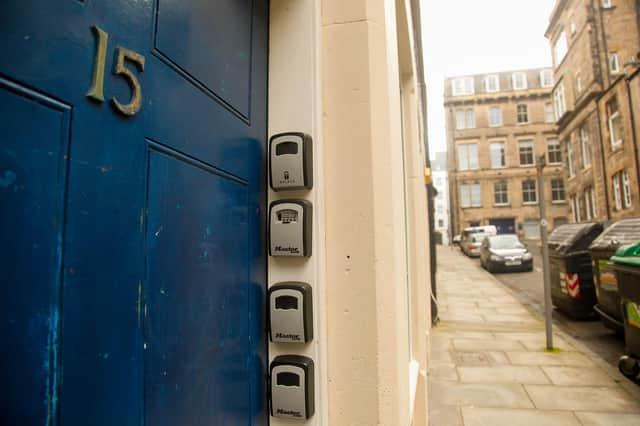More scrutiny is key for the upcoming short-term rentals shake-up - Michael Greig


However, compared to other recent consultations on changes to the planning system, this has been rather short in duration, with no opportunity to comment on the detail of the proposed regulations. There is therefore concern on the adequacy of the consultation exercise for such important regulatory changes as well as the potential impact of some of the proposed changes.
The scope of properties which would be subject to regulation as short-term lets is wider than the Scottish Government proposed in an earlier 2019 consultation paper. The previous proposal was to regulate letting periods of less than 28 days. It is now proposed that, rather than setting a maximum letting period, the temporary commercial letting of all residential accommodation which is not the guest’s only or principal home will be subject to regulation. This potentially catches a wider range of accommodation.
Advertisement
Hide AdAdvertisement
Hide AdThe Scottish Government has also indicated that it does not propose to exclude any types of accommodation from regulation of short-term letting. For example, student accommodation could be regulated. There may be potentially difficult questions about the circumstances when such accommodation comprises a person’s only or principal home and is therefore subject to regulation.


The intention is that local authorities will be given power to implement the new licensing system from 1 April 2021 with all local authorities being obliged to have a live system by 1 April 2022. A transitional system is proposed to allow existing properties to continue to operate whilst requiring new properties to obtain a licence before operating. Existing properties will then be brought into the licensing system with all properties requiring to be licensed by 31 March 2024.
The consultation paper contained a reasonable amount of detail on the proposed licensing system. An application for a licence may be made for home sharing (where the host’s home is used) or secondary letting (where the property is not the host’s home). The Scottish Government intends to set mandatory licensing conditions which will apply throughout Scotland and primarily relate to the safety of the property. These mandatory conditions must be met at the time that the application is made. Local authorities will also have discretion to impose additional conditions but the Scottish Government intends to prohibit local authorities from setting a limit on the numbers of nights for which a property can be let.
In addition to the new licensing system, the Planning (Scotland) Act 2019 gives a local authority power to designate all or part of its area as a short-term let control area. Within a control area, the use of a dwelling house for the purpose of providing short-term lets will always require planning permission. The intention is that planning permission will only be required for the short-term letting of whole properties and not where the host is in residence, although the latter would be subject to licensing.
A key feature of the proposed control area system is that any planning permission would only be valid for a default period of ten years. Planning authorities would have power to revoke planning permission after that time and there is no reference to any payment of compensation for such revocation. The consequences of this for developers of short-term letting accommodation, and for the ability to obtain funding for such development, will be concerning, This is particularly so given that the intention is that the requirement to obtain planning permission in a control zone will apply to existing short-term lets and not just new developments. No consideration appears to have been given to the fact that some properties may have operated as short-term lets for more than ten years and could therefore be immune from enforcement action.
The policy intention to regulate short-term lets is well understood. However, the consultation on the proposed system appears rushed and insufficient time has been given for proper scrutiny. This is particularly concerning given the wide range of properties which may be subject to licensing and the proposed power to revoke planning permissions in control areas.
Michael Greig is legal director in DLA Piper Real Estate practice, in Edinburgh.